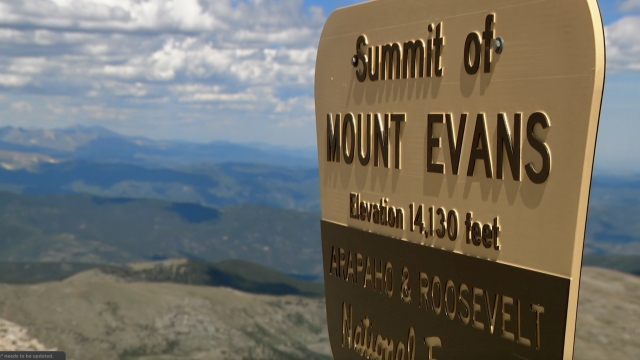Changing the names of landmarks in our country has become complex and controversial. Some of the landmarks may have been named after individuals or events associated with discrimination, racism or colonialism.
Renaming can be seen as a way to rectify past injustices and promote inclusivity and respect for all communities. But the change can take weeks, or it can go on for years, as it did for an Indigenous tribe that just recently finally saw its efforts pay off.
"We shouldn't be honoring somebody who did such a horrific act against human beings," said Gov. Reggie Wassana of the Cheyenne and Arapaho Tribes.
He's referring to the actions of former Colorado Gov. John Evans, whose actions in office in the 1860s caused the tribes to flee the state.
"We were located in and around Denver," said Wassana. "It was legal to kill any Native person, and not only that, but you could take anything of value they had."
SEE MORE: Minnesota high school at crossroad of Indigenous name change debate
Scholars say Evans' actions helped ignite the 1864 Sand Creek Massacre — the deadliest day in Colorado history — in which hundreds of Cheyenne and Arapaho people were murdered. Evans was forced to resign a year later, but his name remained on one of Colorado's tallest mountains, Mt. Evans.
That changed last month.
"When the names are derogatory and they take away from what Native people represent, I think that's when you got to put a stop to it and you got to say, 'Enough is enough,'" said Wassana.
Nicki Gonzales is on Colorado's Geographic Naming Advisory Board, a board that didn't even exist until 2020. But it was established around the same time numerous states — and perhaps the nation — began to reckon with the racial history of the names of many landmarks.
Last summer the U.S. Board on Geographic Naming renamed more than 600 sites whose names featured a word known as a slur against Indigenous women. Colorado's naming board has looked into places with various slurs or potentially offensive terms in their names. On their list a year ago was Mt. Evans.
SEE MORE: How much does renaming controversial military locations cost?
"I think it has gone unchecked for so long because that racism has been so deeply embedded in our culture," Gonzales said. "I mean, we're talking about it. After so many years of not talking about it, or, you know, people in back rooms or academia talking about it amongst themselves, we as a society are openly talking about our racial past as a nation. And that's the first step. And it's going to be messy, because those attitudes, those names, are so deeply embedded in our society."
Last year, the Colorado naming board voted to erase the name Mount Evans and replace it with Mount Blue Sky. Last month, the U.S. naming board made it official.
These days the Cheyenne Arapaho are based in Oklahoma. Gov. Wassana and his people are far from the mountain in the state their ancestors called home. But he finds hope in the mountain, and what the changing of its name represents.
"I think people's outlook towards other groups, other people, other races have changed," said Wassana. "I think we're viewed differently."
Of the mountain, he said, "To give somebody an honor like that wasn't right. And we're glad that it was changed."
Trending stories at Scrippsnews.com





